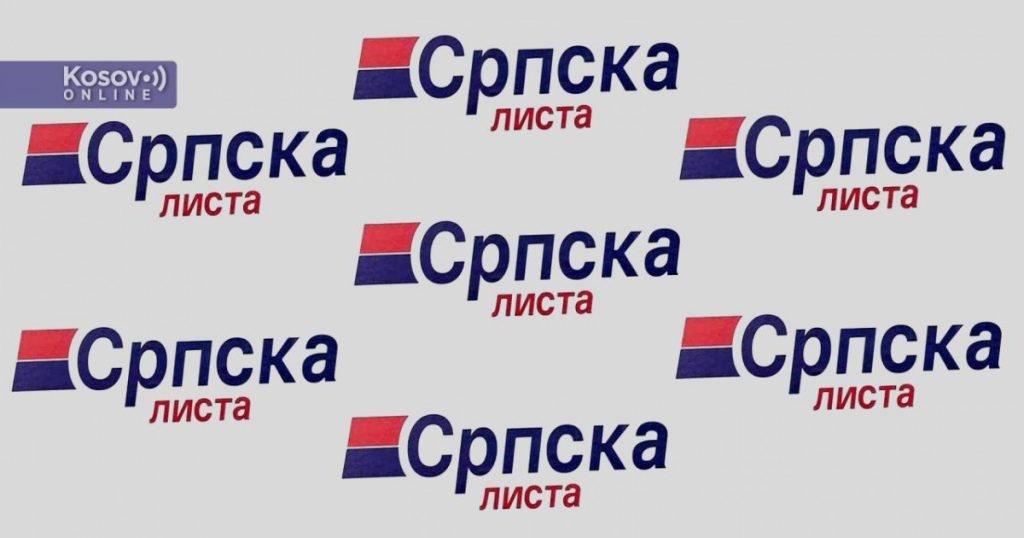Author: Dr. Gurakuç Kuçi – Senior Researcher at the Institute for Hybrid Warfare Studies “OCTOPUS” and professor at UNI College
On 3 August 2025, the Serbian party Novo lice Srbije announced that the Kosovo Civic Initiative “Narodna pravda” has joined it and that in Kosovo they will operate under the name “Novo lice – Narodna pravda.”
After the coalition was made public, they declared that Serbs in Kosovo have been left “at the mercy of Milan Radoicic and Albin Kurti, with whom Serpska (Lista Srpska) has friendly relations,” and that it is essential for Serbs to fight to remain in institutions and to defend the municipalities where the majority is up for election.
By now, the official policy of Belgrade and of Srpska List is clear: whoever does not vote for them is branded a “traitor” and lynched.
As the reaction of Srpska List shows, any alternative is described as “an extended arm of Albin Kurti,” while SL ascribes to itself the monopoly on the “authentic” representation of Serbs, accusing its opponents of wanting “to eliminate all authentic Serb representatives”. Moreover, the institutions of Kosovo are framed as “an occupation and violent intervention by Prishtina”, language used to intimidate voters and stigmatize Serbs who choose participation in institutions as “traitors”. This shows that the message is not aimed at democratic choice, but at preserving control through political lynching.
Therefore, Srpska List strikes at every new alternative in Kosovo: the aim is autocracy; the means, blackmail, stigmatization, and vote-buying.
In the February 2025 elections, the EU Election Observation Mission (EU EOM) reported pressure on voters dependent on social assistance and employment from Serbia, leaving little real space for Serb pluralism.
This model of vote-buying through “soft blackmail” is expected to reappear in October, in the local elections in Kosovo, with the schemes called “social assistance” operated by the so-called “Office for Kosovo and Metohija”. As publicly stated by Petar Petkovic, from autumn 2025 a new round of monthly payments of 20,000 dinars for a further 5,000 people in Kosovo will begin, right before the October local elections (see: https://x.com/gurakuqkuqi/status/1947617574880940385). This comes on top of existing schemes, expanding coverage and electoral pressure.
In essence, “social assistance” is used as a lever of political dependency: it preserves a party monopoly, sabotages the institutional integration of Serbs in the Republic of Kosovo, and turns the electoral process into a controlled mechanism.
From all this it follows that democracy among Serbs in Kosovo is the Vucic regime’s anxiety. This has been proven dozens of times, from the killing of Serbian opposition figures in Kosovo, such as Oliver Ivanovic, to their stigmatization, and up to the manipulation of public opinion with fake opposition figures, as in the case of Aleksander Arsenijevic.
What needs to happen before October
- CEC–Prosecution–Police task force against vote-buying: rapid investigations, an anonymous reporting line, witness protection.
- Strict audit of money flows entering from Serbia and of suspicious transactions.
- Enhanced international oversight in Serb-majority municipalities; EU EOM/OSCE to implement targeted monitoring of the “assistance” and employment networks.
- Targeted sanctions (EU/US and Kosovo) against officials operating schemes of electoral conditioning.
- Clear public message: Serb participation in Kosovo’s institutions is not treason; political intimidation is prosecutable.
Finally, we should bear in mind that:
This isn’t “social assistance”; it is a loyalty fee paid with public money. In October it will be decided whether Kosovo and the US–EU accept free voting or the management of Serb dependency. Now investigations, audits of funds, and targeted monitoring are needed, or we accept that the contest is a farce.
If fear is paid for, the ballot box turns into the regime’s cashbox, and if the opposition is lynched, democracy turns into the discourse of autocracy.

